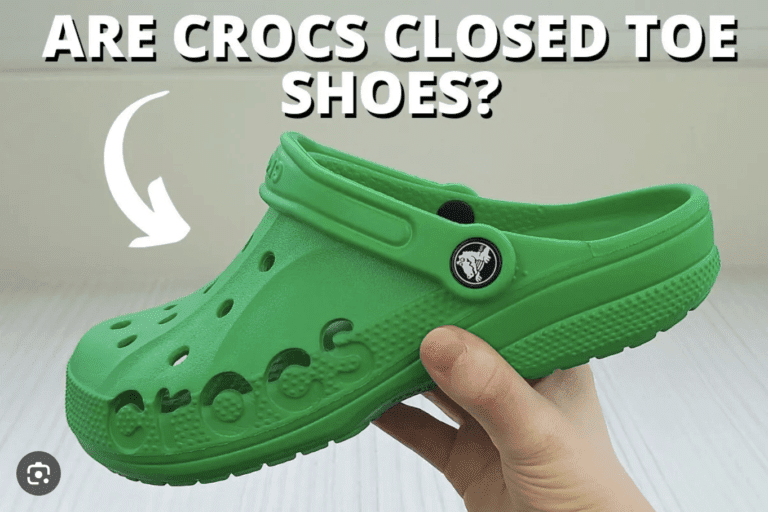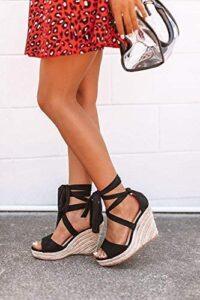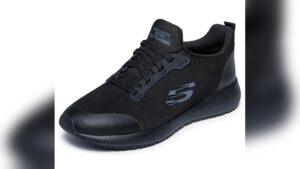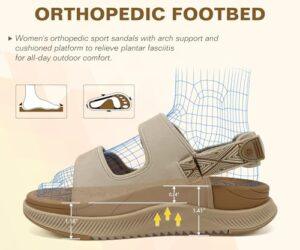Yes, Crocs can count as closed-toed shoes. They cover the toes fully and offer protection.
But there’s more to it than just this basic definition. Crocs are known for their comfort and unique design. They are popular for casual wear, gardening, and even in workplaces. The big question is whether they meet the definition of closed-toed shoes in all contexts.
Some workplaces and schools have strict footwear rules. Understanding if Crocs fit the bill is important. This blog will explore different aspects to help you decide if Crocs are suitable as closed-toed shoes for various needs.
Credit: www.reddit.com
Introduction To Crocs
Many people wonder if Crocs count as closed-toed shoes. Crocs have become a popular choice for footwear. They offer comfort and a unique design. But what are Crocs really? Let’s dive into their history and rise in popularity.
The Origin Of Crocs
Crocs were born in 2002. The founders wanted a comfortable boating shoe. They used a special foam material. This material made the shoes lightweight and easy to clean. The first model was called “The Beach.” It quickly gained attention for its comfort and quirky look.
Popularity Over Time
Over the years, Crocs became more than just boating shoes. People began wearing them everywhere. From gardens to grocery stores, Crocs were seen all around. Celebrities started to wear them too. This boosted their popularity even more. Soon, Crocs became a fashion statement.
Today, Crocs come in many styles and colors. They even have special editions and collaborations. People of all ages wear Crocs. Their unique design and comfort keep them in demand. So, do Crocs count as closed-toed shoes? Let’s explore that further.
Defining Closed-toed Shoes
Crocs are often debated as closed-toed shoes. They cover the toes but have ventilation holes, sparking confusion.
Defining Closed-Toed Shoes Understanding what qualifies as closed-toed shoes is crucial, especially when considering footwear options like Crocs. Whether for work, school, or personal preferences, knowing the difference can save you from making the wrong choice.What Makes A Shoe Closed-toed?
A closed-toed shoe covers the entire front of your foot. The toes are not exposed. This type of shoe typically offers more protection. The material can vary, ranging from leather to synthetic fabrics. However, the key feature is the solid coverage over the toe area. Closed-toed shoes are often required in settings where safety is a concern. For example, many workplaces have specific dress codes to prevent injuries.Common Examples
Some common examples of closed-toed shoes include: – Sneakers: Ideal for casual wear and sports activities. – Boots: Perfect for both fashion and function, offering protection and style. – Loafers: A comfortable option that works well for both formal and casual occasions. Each type has its own unique benefits. But the common thread is that they all keep your toes covered and protected. So, do Crocs count as closed-toed shoes? It depends on the style. Classic Crocs have ventilation holes, which might not meet strict definitions. However, some styles without holes could qualify. In the end, whether Crocs are considered closed-toed will depend on the specific requirements of your environment. Always check the guidelines to make the best choice for your needs.Crocs Design Features
Crocs are often debated when discussing closed-toed shoes. Their unique design sets them apart from traditional footwear. Let’s dive into the specific design features of Crocs.
Material And Construction
Crocs are made from a material called Croslite. Croslite is a proprietary foam resin. This material is lightweight and durable. It provides comfort and support. The construction of Crocs is simple. They have a molded design. This means fewer seams and potential weak points. The Croslite material is also water-resistant. It is easy to clean and dries quickly. This makes Crocs suitable for various environments.
Ventilation Holes
One defining feature of Crocs is their ventilation holes. These holes are located on the top and sides. They provide breathability for your feet. This helps to keep your feet cool and dry. Ventilation holes also allow water and debris to escape. This makes Crocs practical for outdoor activities. Despite the holes, Crocs still cover the toes. This is why some consider them closed-toed shoes. The holes do not compromise the overall protection of the toes.
Safety And Functionality
Crocs can be considered closed-toed shoes due to their design. The front covers the toes, providing safety and functionality. Suitable for various environments, they offer comfort and protection.
When considering footwear, safety and functionality often top the list of priorities. This is particularly true in settings where closed-toed shoes are required for protection. Crocs, known for their unique design and comfort, often spark debate: do they meet these criteria? Let’s delve into their safety and functionality.Protection And Comfort
Crocs are made from a proprietary foam material known as Croslite. This material is soft yet durable, providing a cushioned feel with every step. The closed-toe design of Crocs can protect your feet from minor bumps and scrapes. However, they may not offer the same level of protection as steel-toed boots or more robust closed-toe shoes. When it comes to comfort, many users swear by Crocs. Their lightweight design and breathable construction make them ideal for long hours of wear. Are they the best choice for rigorous activities? Perhaps not, but for everyday use, they strike a balance between comfort and protection.Suitability For Different Activities
Crocs are versatile, but their suitability varies depending on the activity. For instance, they are excellent for gardening or casual walks, where comfort and ease of cleaning are essential. In professional settings like kitchens or hospitals, Crocs are a popular choice. They provide good grip and are easy to clean, but their open-heel design can be a drawback in environments requiring more foot protection. However, for activities requiring more rigorous foot protection, such as construction or heavy machinery work, Crocs may not be the best choice. Their lightweight and flexible design can’t compete with the sturdiness of traditional work boots. Would you feel confident wearing Crocs in a potentially hazardous environment? It’s essential to weigh the pros and cons based on your specific needs. Ultimately, Crocs offer a unique combination of comfort and some degree of protection, but their suitability depends largely on the activity at hand. Whether they count as closed-toed shoes might be a matter of perspective, but their functionality in various settings is undeniable.Dress Codes And Regulations
Many schools and workplaces have strict dress codes. These rules help maintain a professional environment. They also ensure safety and uniformity. Crocs, with their unique design, often spark debates. Are they suitable for these settings? Let’s explore school and workplace policies, and health and safety standards.
School And Workplace Policies
Schools set dress codes to create a learning-focused atmosphere. Some require closed-toed shoes to protect feet. Crocs, with their breathable design, may not always meet this requirement. It depends on the school’s specific rules.
Workplaces also enforce dress codes. In offices, closed-toed shoes are often a must. This helps maintain a professional look. Crocs might not fit this image. In more casual settings, they might be allowed. Always check the company policy.
Health And Safety Standards
Health and safety standards play a big role in shoe choices. Certain jobs need closed-toed shoes for protection. Think of construction sites or kitchens. Crocs might not offer enough protection in these environments.
Some Crocs models have better coverage. These might be acceptable in less risky settings. Always consider the specific health and safety needs of your job.
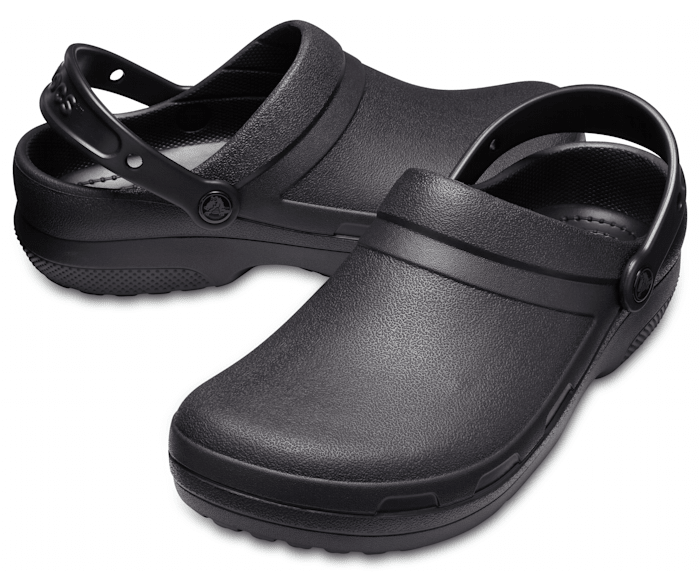
Credit: www.crocs.com
Expert Opinions
Do Crocs count as closed-toed shoes? Many people wonder about this. Let’s dive into expert opinions to shed some light on the subject. Different experts have varied views. Here, we will explore what footwear specialists and the fashion industry think.
Footwear Specialists
Footwear specialists often consider the design and purpose. Crocs cover the toes. This makes them closed-toed in a functional sense. They protect the toes from bumps and falls. This is why many specialists agree. Crocs are indeed closed-toed shoes.
Specialists also note the material. Crocs are made from a durable foam resin. This gives them structure and support. The closed-toe design is not just for looks. It offers real protection. So, according to many experts, Crocs fit the bill.
Fashion Industry Views
The fashion industry has its own take. Many fashion experts view Crocs differently. They focus on style and trends. Crocs are often seen as casual footwear. They may not fit the traditional idea of closed-toed shoes. But in terms of function, they do cover the toes.
Fashion experts agree on one thing. Crocs have a unique place in fashion. They blend comfort with functionality. While some may not consider them closed-toed in a strict sense, they do recognize their protective design.
Public Perception
Public perception plays a significant role in determining the acceptability of Crocs as closed-toed shoes. Many people have mixed opinions about them. Some appreciate their comfort. Others question their style and functionality.
Consumer Reviews
Consumer reviews often highlight the comfort of Crocs. Many users praise the cushioned sole. They appreciate the lightweight design. Yet, some express concerns about their durability. There are also mixed opinions on their suitability in various settings.
Social Media Trends
Social media trends provide insight into the public perception of Crocs. Platforms like Instagram and TikTok feature many users showcasing their Crocs. Some posts show creative ways to style them. Others focus on their practicality. These trends indicate a growing acceptance. Yet, debates about their fashion sense continue.
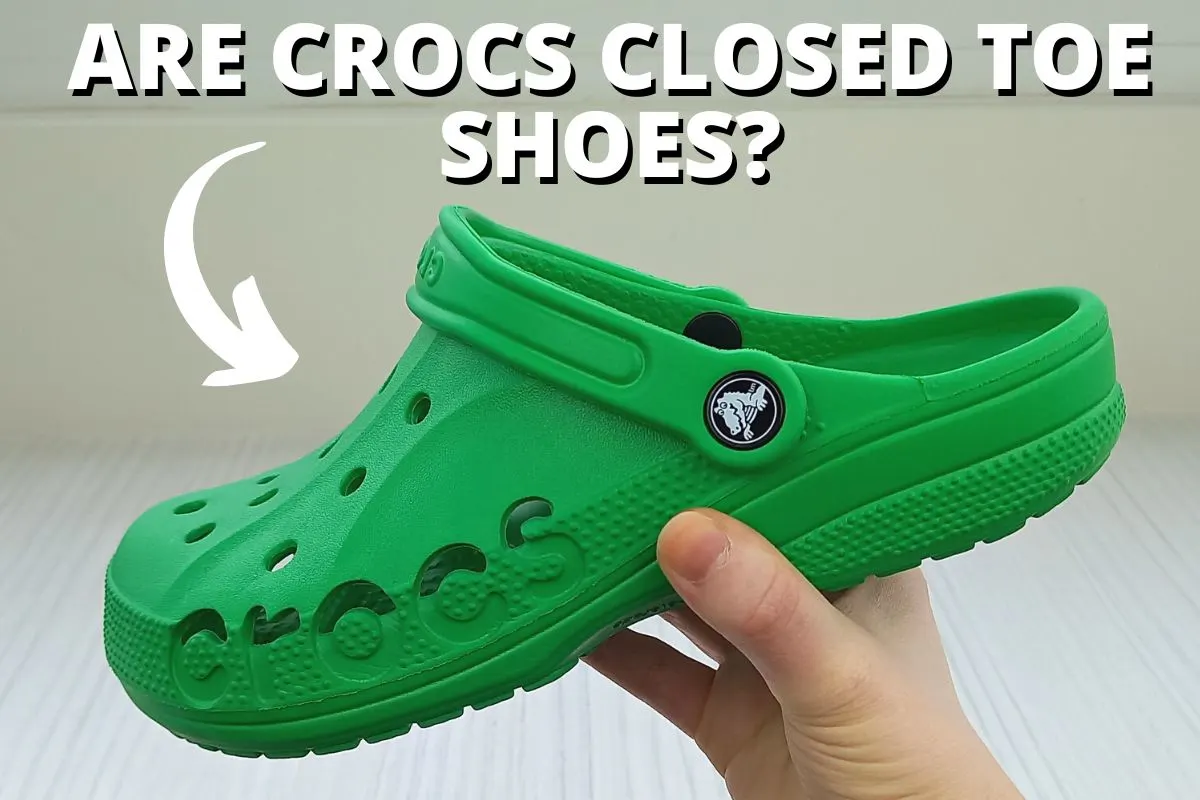
Credit: dainiknepalgunj.com
Frequently Asked Questions
Are Crocs Considered Closed Toe Shoes Osha?
No, Crocs are not considered closed toe shoes by OSHA. They do not meet OSHA’s safety standards for protective footwear.
What Counts As Closed Toe Shoes?
Closed toe shoes cover the entire front of the foot, including toes. Examples include sneakers, boots, and loafers.
What Type Of Shoes Are Crocs Considered?
Crocs are considered casual footwear. They are known for their comfort, lightweight design, and distinctive look. Suitable for everyday wear, outdoor activities, and even as water shoes.
Why Do Podiatrists Hate Crocs?
Podiatrists dislike Crocs because they lack arch support and stability, which can lead to foot problems.
Conclusion
Crocs can be considered closed-toed shoes, depending on the style. They cover the toes and offer protection. Comfort and versatility make them popular. For specific activities, check if Crocs meet the dress code. Always choose the right footwear for your needs.
{ “@context”: “https://schema.org”, “@type”: “FAQPage”, “mainEntity”: [ { “@type”: “Question”, “name”: “Are Crocs considered closed toe shoes OSHA?”, “acceptedAnswer”: { “@type”: “Answer”, “text”: “No, Crocs are not considered closed toe shoes by OSHA. They do not meet OSHA’s safety standards for protective footwear.” } } , { “@type”: “Question”, “name”: “What counts as closed toe shoes?”, “acceptedAnswer”: { “@type”: “Answer”, “text”: “Closed toe shoes cover the entire front of the foot, including toes. Examples include sneakers, boots, and loafers.” } } , { “@type”: “Question”, “name”: “What type of shoes are Crocs considered?”, “acceptedAnswer”: { “@type”: “Answer”, “text”: “Crocs are considered casual footwear. They are known for their comfort, lightweight design, and distinctive look. Suitable for everyday wear, outdoor activities, and even as water shoes.” } } , { “@type”: “Question”, “name”: “Why do podiatrists hate Crocs?”, “acceptedAnswer”: { “@type”: “Answer”, “text”: “Podiatrists dislike Crocs because they lack arch support and stability, which can lead to foot problems.” } } ] }
Madison Clark is a footwear expert and the voice behind MyStyleGrid.com. She specializes in honest shoe reviews, style tips, and practical guides to help readers find the perfect pair for any occasion. With years of experience in blogging and content creation, Madison makes footwear knowledge simple, stylish, and easy to follow.

